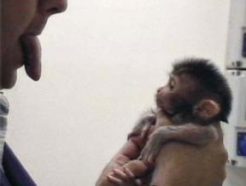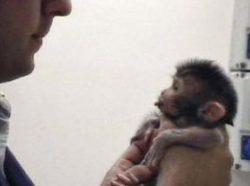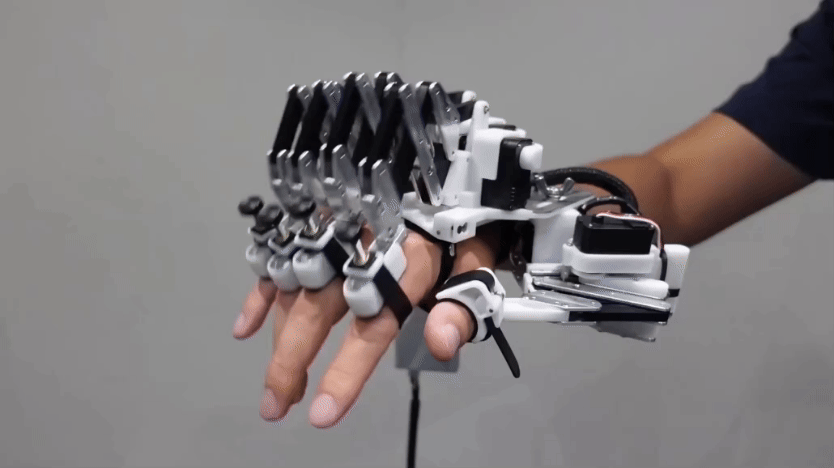Copycat Monkeys
When you stick out your tongue, a baby monkey will follow your lead.
By Emily Sohn
Imitation can be annoying—like when your little brother or sister repeats everything you say. It can also be fun—like during a game of follow-the-leader.
Imitation is also an important way for babies to learn about interacting with adults. Scientists have observed such copycat behavior in human and chimpanzee infants. A new study adds monkeys to the list.
 |
|
After an experimenter sticks his tongue out at a 3-day-old macaque (above), the monkey returns the favor (below). |
| Pier F. Ferrari and coworkers |
 |
|
|
The study included 21 baby macaques. All were tested five times during the first 30 days of their lives.
During each session, a person held a monkey so that it could see his face. Each time, the experimenter started with a plain face followed by a series of displays that included sticking out the tongue, opening the mouth, smacking the lips, opening a hand, and spinning a face-sized colored disk. Between each behavior, the experimenter again made a plain face.
In response to these behaviors, many of the day-old macaques smacked their lips after seeing a mouth opening and closing, but they didn’t copy what they had seen.
At 3 days old, 13 of 16 macaques smacked their lips and stuck their tongues out after the experimenter did. They didn’t imitate any other behaviors.
At 7 days, only four of the monkeys continued to copy the lip-smacking behavior. By day 14, none of the monkeys was imitating the experimenters.
Baby monkeys appear to imitate the same facial expressions in their mothers during the first week of life, the scientists say. Adult macaques smack their lips and stick their tongues out when they are being friendly and cooperative.
Macaques communicate mostly by looking at each other, face to face. This might explain why imitation is an important skill among these animals. Next, the scientists want to figure out if baby monkeys who imitate adults grow up to be smarter or better adjusted than those who do their own thing.
In contrast to macaques, human and chimp babies start imitating others at 2 to 3 weeks of age. The behavior usually continues for several months. Macaque imitation starts sooner and occurs over a shorter time because these monkeys grow up faster and become part of a social group much more quickly that people or apes do.
The saying “monkey see, monkey do” appears to be true, after all.—E. Sohn
Going Deeper:
Bower, Bruce. 2006. Copycat monkeys: Macaque babies ape adults’ facial feats. Science News 170(Sept. 9):163. Available at http://www.sciencenews.org/articles/20060909/fob1.asp .
You can learn more about macaque monkeys at www2.gsu.edu/~wwwvir/VirusInfo/macaque.html (Georgia State University) and en.wikipedia.org/wiki/Macaque (Wikipedia).







